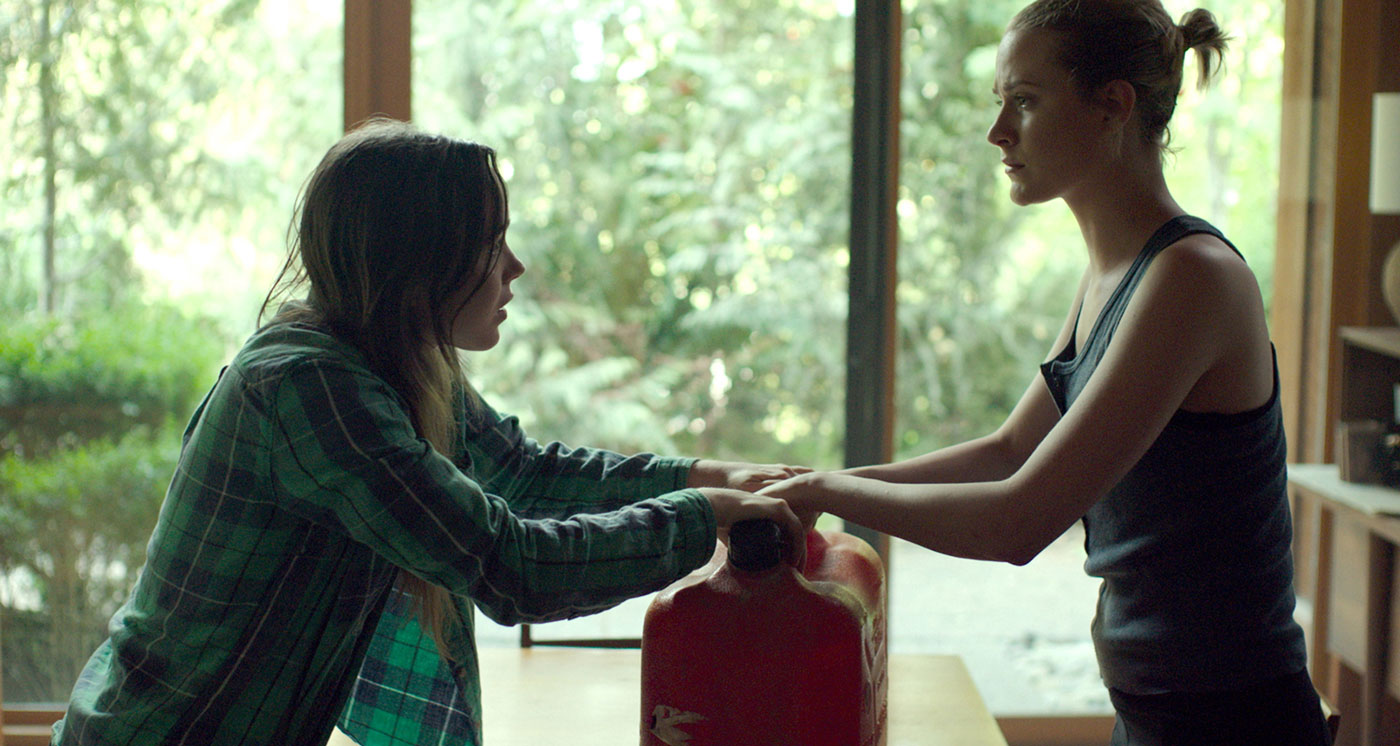Patricia Rozema’s Into the Forest is liable to engender a few distinct feelings. First comes exasperation over this being the umpteenth post-apocalyptic movie to hit theaters these last few years, a disturbing sign of our culture’s addiction to the genre. But then there’s a sense of relief, even admiration, upon realizing that this particular post-apocalyptic movie focuses on the perspective of those people who make up half of this planet’s population, and yet who have been largely absent from narratives about its collapse: namely, women.
Before a viewer contends with the former and evaluates the latter, however, Into the Forest introduces itself with an ominous opening montage: somber shots of the film’s two principals (Ellen Page and Evan Rachel Wood) are set to Cat Power’s cover of “Wild is the Wind.” A hit for Johnny Mathis, the song’s definitive version is Nina Simone’s; she transfigured it into a feminine paean to lovelorn longing. Cat Power slows down Simone’s classic (another trend in movies today: heaviness signified by ubiquitous tunes performed at a barely recognizable BPM), draining it of its emotional power. In short, this is “Wild is the Wind” in form, but not feeling.
https://www.youtube.com/watch?v=GSEBRc3KiTo
That might also be the best encapsulation of Rozema’s film, which is adapted from a 1996 novel of the same name by Jean Hegland, and which, as a premise at least, posits some important ideas and their implications—for instance, the heightened possibility of sexual assault and the practical concerns of giving birth that women might be subjected to in a dystopic future—but which, in execution, often dramatizes these concerns in the most maudlin of ways.
This seems in large part due to Rozema’s screenplay, which understandably does away with the lyrical language of Hegland’s text, but which never comes up with a suitably cinematic grammar to replace it. Into the Forest does however faithfully replicate its source’s plot—and along with it, its lack of incident. Following a vaguely defined event that leaves the US (and possibly the world) without electrical power, Eva (Wood) and her younger sister Nell (Page) find themselves stranded with their father (Callum Keith Rennie) in a forested area of the Pacific Northwest, struggling to get by on rationed food and the modest yield of their own crops.
Even at a relatively reasonable 101 minutes, Into the Forest can feel both shapeless and distended. Rozema has a tendency to undersell inaction—she plods through repetitive scenes of the sisters scavenging, squabbling, and repeatedly reconciling—and to oversell the few genuinely impactful moments here; betraying the social realism that this nominally science fiction–affiliated film often favors, she opts for a rote and anachronistic melodrama.
Even at a relatively reasonable 101 minutes, Into the Forest can feel both shapeless and distended.
Part of the blame seems to sadly lie with the actresses—in particular Page, who convinces fully neither as an earnest, emotionally needy younger sister nor as a distant, angsty, and introverted one, and who vacillates unpredictably between the two. Wood fares better, perhaps because her character is older and afforded a more even-keeled sense of maturity. But both Nell and Eva suffer from characterizations that feel a little too manipulated by the needs of plot, subject to vulnerabilities and strengths explained only by convenient ellipses in time.
Despite all this, the impression of Into the Forest as a somehow vital and singular interpretation of a traditionally masculine genre has some merit. For instance, even the obsession with minutiae, the lengthy time spent with Nell and Eva in their deteriorating home, feels like an important gesture in this unapologetically feminist picture: the discussion surrounding one girl’s missed period and the prolonged psychological effect of a sexual assault have rarely if ever been given so much attention in what’s essentially still a genre film.
These are things that may not always call immediate attention to themselves when watching Into the Forest—and, in fact, it’s the scenes that don’t feel quite so self-consciously emblematic of Rozema’s ambitions that are the most successful. But the subtle reorganization of emotional stakes and expectations that come as a direct result of Rozema putting two female characters on the screen for her post-apocalyptic film’s entire duration is enough to earn Into the Forest at least the distinction of worthwhile curiosity within this genre’s bloated canon. FL







